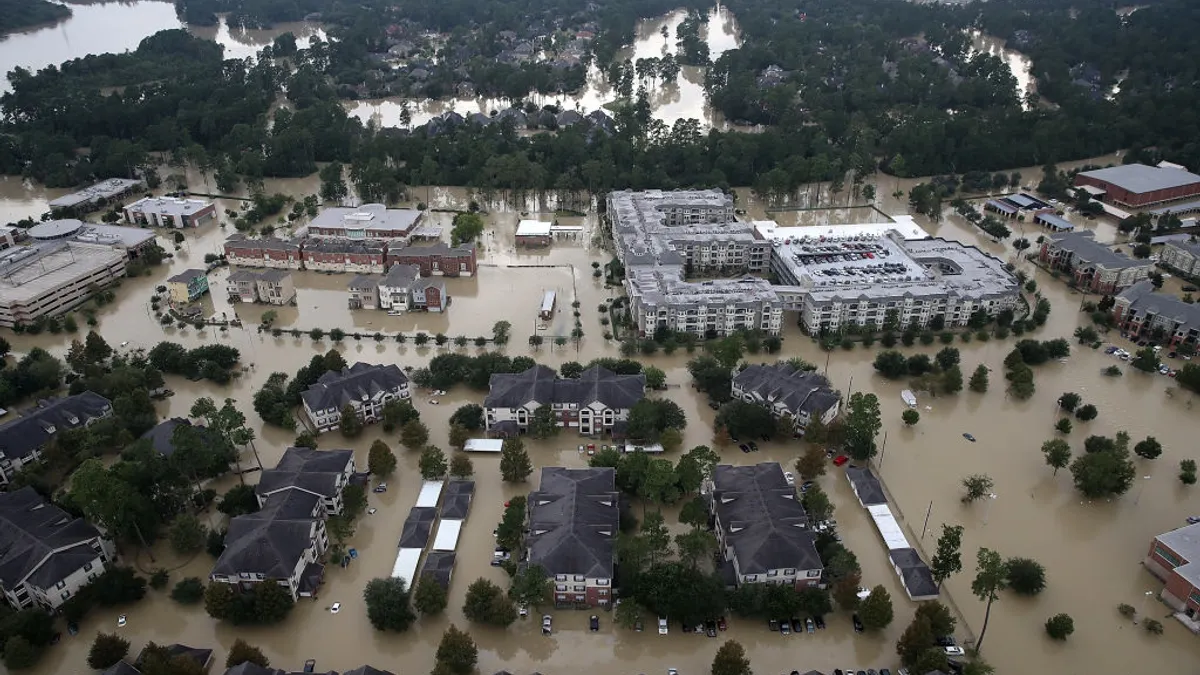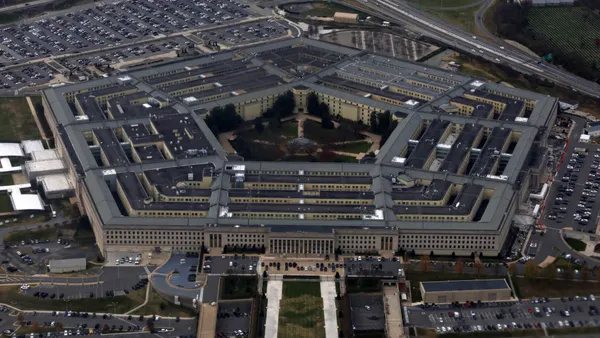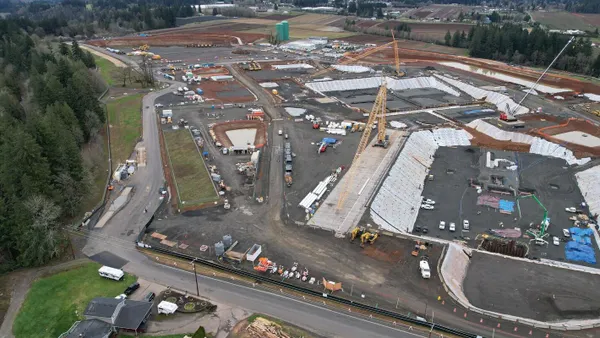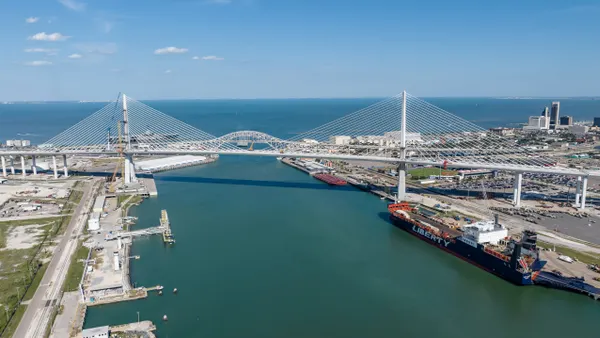Dive Brief:
- The Biden administration on April 19 restored key regulations in the National Environmental Policy Act, which requires review of federal projects to assess their likely impacts on climate change and nearby communities. The changes to the NEPA rules will go into effect in late May, and could mean proposed infrastructure like highways, pipelines and railways take more time to get approved.
- Former President Donald Trump loosened the country’s oldest environmental law in 2020 in an effort to accelerate projects, shortening the period for gathering environmental information and community input, and allowing federal officials to disregard projects’ likely contributions to climate change. This update reverses some of Trump’s changes.
- Construction industry groups said the new rules will increase costs for contractors and delay critical projects enabled by the federal Infrastructure Investment and Jobs Act. Climate advocates welcomed the changes, as did state transportation officials, who said returning to longstanding rules would lend certainty to infrastructure projects.
Dive Insight:
NEPA is a foundational environmental law, enacted in 1969, which has served as a key tool for activists and community groups to oppose projects they don’t want. Construction industry leaders have long decried how the NEPA process can delay federal builds.
Former president Trump said he weakened NEPA rules to speed up projects and create jobs. Before that, the last significant rewrite was in 1986 under Ronald Reagan.
Among other requirements, Trump’s changes included a two-year time limit for environmental impact statements and a prohibition keeping federal agencies from considering projects’ impact on climate change when approving projects. It also mandated increased coordination between agencies and use of local, state and tribal documentation to avoid duplicating efforts at the federal level.
However, a more rigorous environmental review up front will actually speed project completion, White House Council on Environmental Quality Chair Brenda Mallory said in a press conference, since those approved will be more likely to withstand legal challenges. Courts have reversed many Trump-era environmental decisions after finding projects did not undergo sufficient analysis.
Here are the new NEPA changes, which Biden first proposed in October:
- Federal agencies must consider the indirect and cumulative environmental impacts of the projects they review, not just the direct ones. They must also analyze how climate change might affect the new infrastructure later on.
- Federal agencies have more flexibility to consider alternatives to proposed projects that would meet the same goals, and can now work with local communities to determine the “purpose and need” of a given project.
- Federal agencies also have more flexibility to tweak their environmental review processes — which can be more, but not less, stringent than the CEQ’s procedures.
Federal agencies are not required to reject projects likely to worsen climate change, but must examine and report the impacts. This update was the first of a two-part process and in the coming months, NEPA will likely see more changes as the administration enters the second phase.
Worth noting for public works contractors: Changes made to NEPA as part of the passage of the $1.2 trillion infrastructure act last November shorten the environmental impact statement timeline to two years and cap the document at 200 pages, and exclude certain infrastructure (such as some gas pipelines and low-budget surface transit projects) from the environmental review entirely. These waivers remain on the books.
Industry reactions
Environmental advocates praised the new rules; those in the infrastructure space had mixed reactions. Melissa Savage with the American Association of State Highway and Transportation Officials told Route Fifty the group supports the changes, in large part because they reinstitute familiar rules. Construction industry groups panned the updates.
“It seems clear the Biden administration is intent on doubling down on regulations that will undermine the potential benefits of the bipartisan infrastructure bill,” said Brian Turmail, vice president of public affairs with Associated General Contractors of America. “Slower approvals do not mean cleaner projects, but they do guarantee costlier ones.”
“Because of this regulation and new Buy America rules the administration issued on Monday, many Americans will soon wonder why so little got accomplished with this trillion dollar investment, undermining the political case for future, similar, investments,” he said.
American Road & Transportation Builders Association President & CEO David Bauer said in a press release, “Reinstating outdated regulations that require project sponsors to guess about the indirect impacts of transportation improvements only guarantees that those projects will take too long to deliver.”
ARTBA is currently helping defend the Trump administration’s NEPA changes in federal court.














